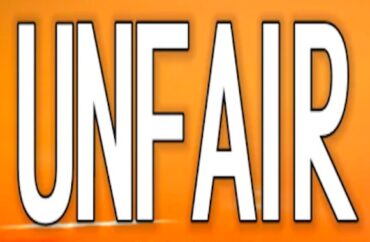
The Ivy needs to implement ‘equity-oriented solutions’
A second-year engineering student at Princeton University recently argued that since everyone’s high school experience is not the same, the Ivy must implement “equity-oriented solutions” to correct the situation.
Yushra Guffer’s Daily Princetonian op-ed opens by stating an obvious truth: “[W]hile the University’s high standards of excellence and fast-paced environment may be valid goals to strive for, not all students are able to keep up with the pace.”
But her solution isn’t that students should buckle down and work harder if they want to continue with an Ivy League science-centered education. No, Princeton must accommodate those who can’t hack it.
“Princeton needs to re-evaluate the difficulty of the STEM introductory courses and implement equity-oriented solutions that directly address the different levels of student preparation,” Guffer writes. “After all, the level of academic rigor at Princeton can only be truly effective if all students are first able to work on a level playing field.”
Guffer claims Princeton’s resources are insufficient for those “who may feel out of their depth in these introductory STEM courses.” For instance, while the Scholars Institute Fellows Program is helpful for FGLI (First Generation Low Income) students, it isn’t for those “who came from disadvantaged high schools […] not under the FGLI umbrella.”
MORE: Young men just more interested in STEM fields, poll finds
A potential solution may include allowing or even encouraging students who have previously taken an equivalent course to test out. As a result, students who have previously taken a similar or equivalent course will not be forced to retake it, and can instead be placed at an education level that more accurately matches their academic background. [This] can help prevent a negative curve by leaving these introductory courses for students who are not familiar with the material. …
Another possible solution may be to implement a predetermined curve that is not dependent on how well students are currently performing in the course. In certain courses, curves can easily change from semester to semester and may often depend heavily on the performance of certain well-performing students — making it unfair for others. …
[I]t might also be helpful to allow introductory courses or prerequisites to be taken on a Pass/D/Fail (PDF) basis, so that students don’t have to worry about their GPA so early in their academic career.
The sophomore’s proposals didn’t exactly go over well on X:
College is not about lowering the standards for unprepared students. If students are not able to handle the course content because they are not ready, then they should be at a community college to improve.
— Paul Lindsey (@plindseyusa) March 29, 2024
I believe those kind of classes are the kind to weed out the people who don’t belong in STEM courses. Not cuz of ‘racism’ but that you don’t have the knowledge to do it. Its not their jobs to make easier so you will be proud of yourself. Find something else!!!
— Sailor Skuld (@slrskuld) March 31, 2024
We need federal legislation to guarantee every American the right to a Princeton diploma.
— PhilipTerzian (@PhilipTerzian) March 29, 2024
“The level of academic rigor at Princeton can only be truly effective if we reduce the level of academic rigor at Princeton.”
— Brian Patrick Eha (@brianeha) March 29, 2024
MORE: MIT debaters clash over whether STEM is ‘systemically racist’
IMAGE: Dream Lyrics/YouTube
Like The College Fix on Facebook / Follow us on Twitter





Please join the conversation about our stories on Facebook, Twitter, Instagram, Reddit, MeWe, Rumble, Gab, Minds and Gettr.